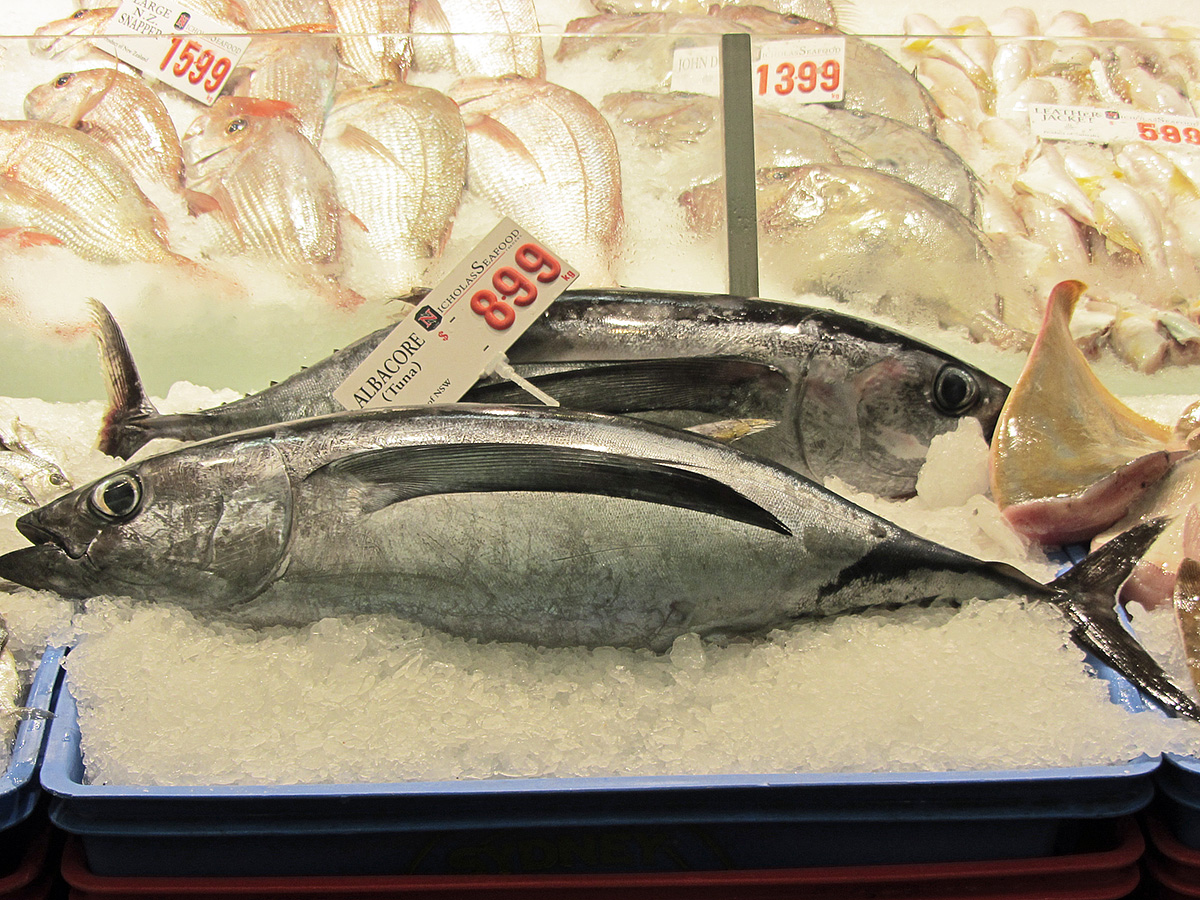June 26, 2023

As the largest ocean in the world, the Pacific covers a third of Earth’s surface and is bigger than all the world’s landmasses combined. So, it’s no surprise that it’s the only ocean basin with two dedicated Regional Fisheries Management Organizations for tuna and other highly migratory species (tuna RFMOs or tRFMOs for short), oriented to its eastern and western halves. The Inter-American Tropical Tuna Commission (IATTC) is responsible for management from Southern Canada down to the tip of South America, and west towards approximately Hawaii. And around and west of Hawaii, approximately the western 2/3rd’s of the basin, Pacific tuna are managed by the Western and Central Pacific Fisheries Commission (WCPFC).
In many cases, these tRFMOs have their own contained stocks. Yet, despite the Pacific being 20,000 km from end to end, some highly migratory species require cohesive management across the basin’s full longitudinal breadth. One such example is North Pacific albacore tuna, which has an annual migration cycle that takes it from waters off Japan all the way to the United States, resulting in a single stock residing in the North Pacific.
North Pacific albacore is often considered a smart seafood choice by organizations such as seafood watch, with the stock neither overfished nor experiencing overfishing. Pole and line is the primary fishing gear, which is known to have a low impact on the broader environment as a highly selective gear with very little unwanted bycatch. But enacting new policies will be crucial for maintaining the sustainability of this stock. As temperature-sensitive fish, changes in the environment, including from anthropogenic climate change, have the potential to shift albacore’s distribution and perhaps even abundance. Measures that can help the fishery adapt to such impacts, such as harvest strategies, will be especially important.
Fortunately, following an agreement on management objectives and other harvest strategy elements by both IATTC and WCPFC in 2022, a full harvest strategy for North Pacific albacore is scheduled to be adopted this year. Achieving this will require several steps, beginning in the first week of July when WCPFC’s Northern Committee convenes to discuss management of WCPFC’s fisheries occurring in mainly temperate waters. The United States and Canada have submitted a joint proposal for a harvest strategy that would automatically adjust fishing levels to keep the stock at the target population size agreed last year. It also includes measures to guide collaboration between IATTC, WCPFC, and the International Scientific Committee (ISC, the body responsible for science of North Pacific tRFMO stocks) to ensure smooth decision making processes as the harvest strategy operates.
If the draft formulaic harvest strategy can be agreed to at this meeting, it would set the stage for an equivalent, full harvest strategy to be adopted first by the IATTC in August, and then WCPFC in December, creating the first harvest strategy in the world to be enacted by two or more RFMOs together. Following on the heels of the first multi-stock harvest strategy adopted last year for Atlantic bluefin tuna, a joint harvest strategy for North Pacific albacore would be another major breakthrough in adapting harvest strategies across a diversity of management contexts. It would also set important precedent for developing a harvest strategy for Pacific bluefin tuna, which would also need to be jointly enacted by IATTC and WCPFC and is scheduled for adoption in 2025.
Stay tuned to our twitter feed to see how things progress!